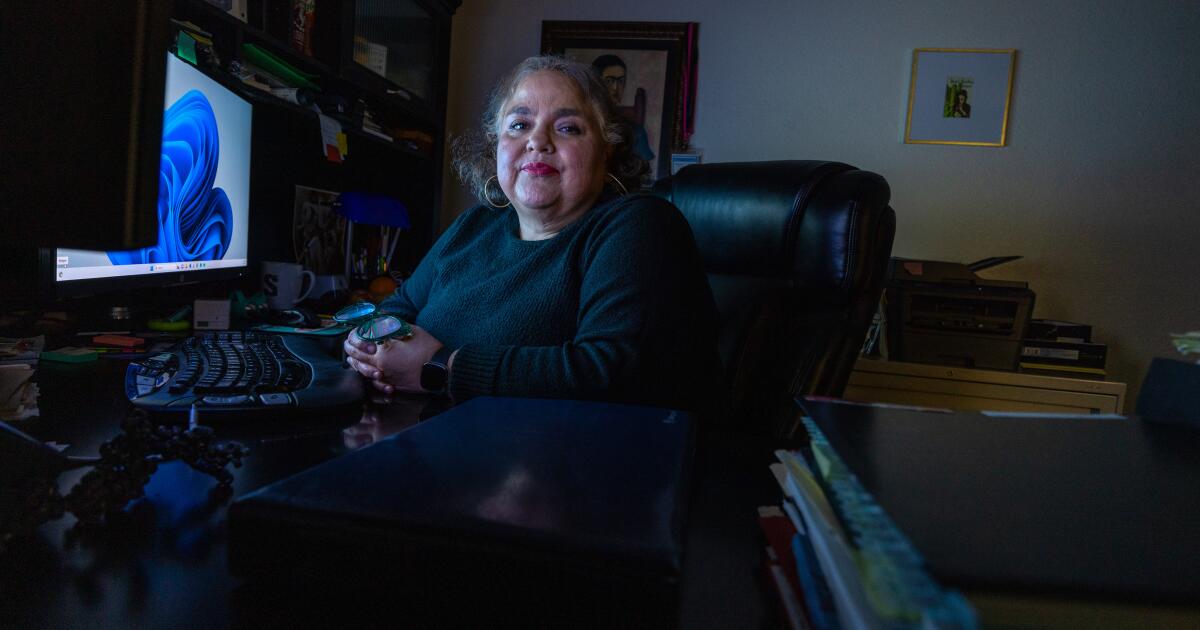The Supreme Court on Friday ruled 6-3 against a Los Angeles woman who argued her constitutional rights were violated when the federal government denied a visa to her Salvadoran husband, in part because they viewed his tattoos as gang-related.
Luis Asencio Cordero, who lived in the U.S. until 2015, has been separated from his wife, L.A. civil rights attorney Sandra Muñoz, since the visa was denied during a consular interview in El Salvador.
The couple sought to file a new visa application with evidence refuting his alleged membership in the MS-13 gang, and wanting assurance that the federal government would review it.
The government said it denied the visa due to concerns that Asencio Cordero would be likely to engage in unlawful activity if he were allowed back into the U.S.
Muñoz argues the government violated her rights to marriage and due process by failing to provide a timely explanation for her husband’s visa denial. After the couple sued, they learned through their lawsuit that the government believed he was an MS-13 gang member, based on his tattoos, an interview and a background check. Asencio Cordero had no criminal convictions in the U.S.
Asencio Cordero’s tattoos depict the comedy and tragedy theater masks, La Virgen de Guadalupe and a tribal design with a paw print. He denies they are affiliated with a gang, and a court-approved gang expert agreed.
A long-established judicial policy — the doctrine of consular nonreviewability — prevents court reviews of visa determinations except in limited cases.
The 9th Circuit Court of Appeals ruled in favor of the couple in 2022. The Biden administration asked the Supreme Court to reverse the ruling, arguing that because Muñoz and Asencio Cordero could choose to live outside the U.S., her right to marriage has not been violated.
Immigration officers have broad discretion about whom to admit into the country, administration lawyers said. They also said that requiring the government to disclose specific details about the evidence and intelligence used in such decisions would slow processing, pose a risk to public safety and could chill future information-sharing with foreign partners.
The couple’s attorney Eric Lee said the court’s decision strengthens consular officers’ broad powers.
Separately this week, President Biden announced an executive order to protect immigrant spouses of U.S. citizens who have lived consecutively in the country for at least a decade. At the White House on Tuesday, Biden said it’s the right thing to do.
“There’s already a system in place for people we’re talking about today,” Biden said. “But the process is cumbersome, risky, and it separates families. From the current process, undocumented spouses of U.S. citizens must go back to their home country… to obtain long-term legal status. They have to leave their families in America, with no assurance they’ll be allowed back in the United States.”
Had he never left the country, Asencio Cordero could have qualified for protections. For Lee, the announcement was bittersweet.
“We hope the new relief applies to as many families as possible,” Lee said, “but it is hard not to ask: If these are the new criteria, then why did the administration fight Sandra and Luis’ case as hard as they did for so many years?”
